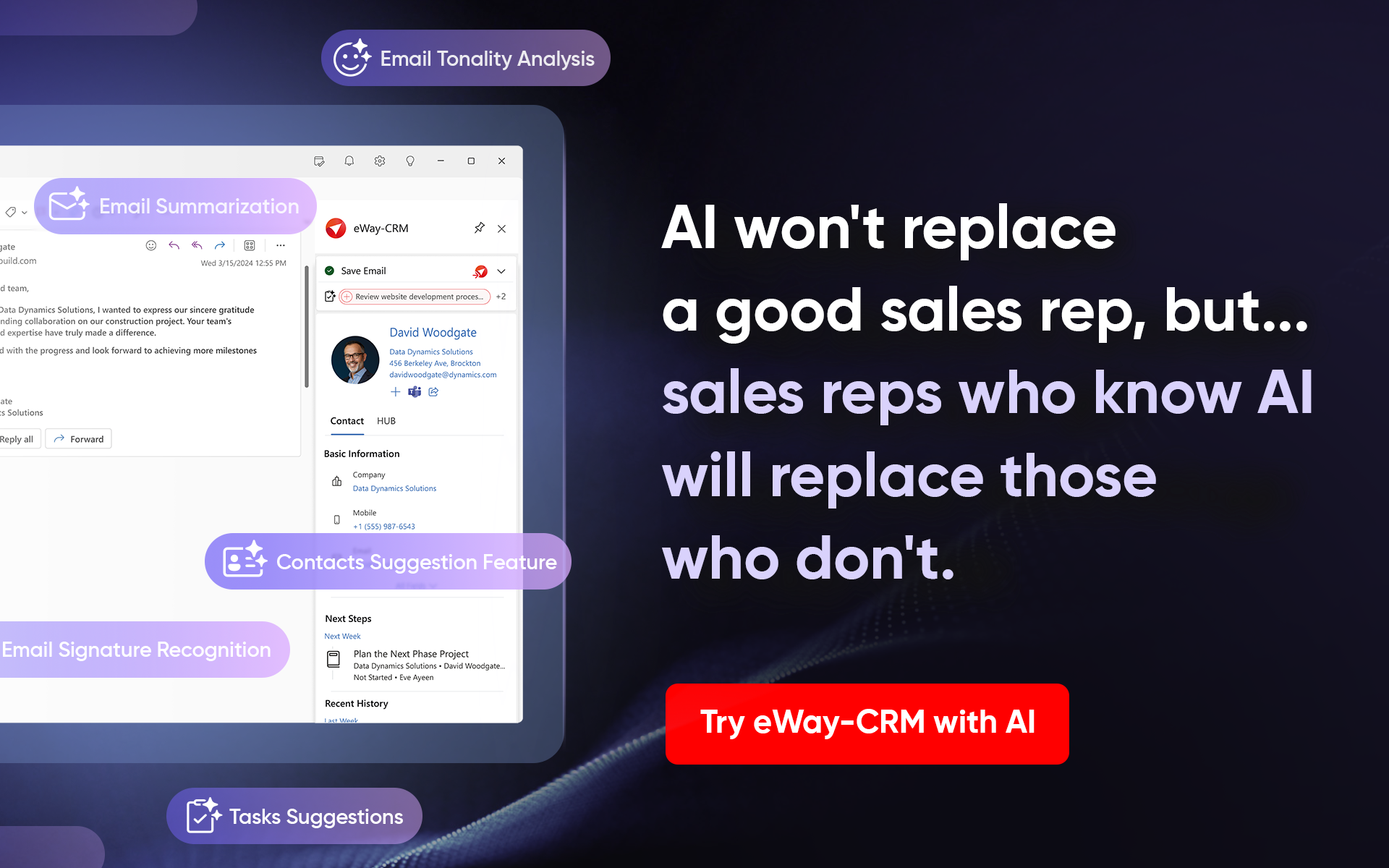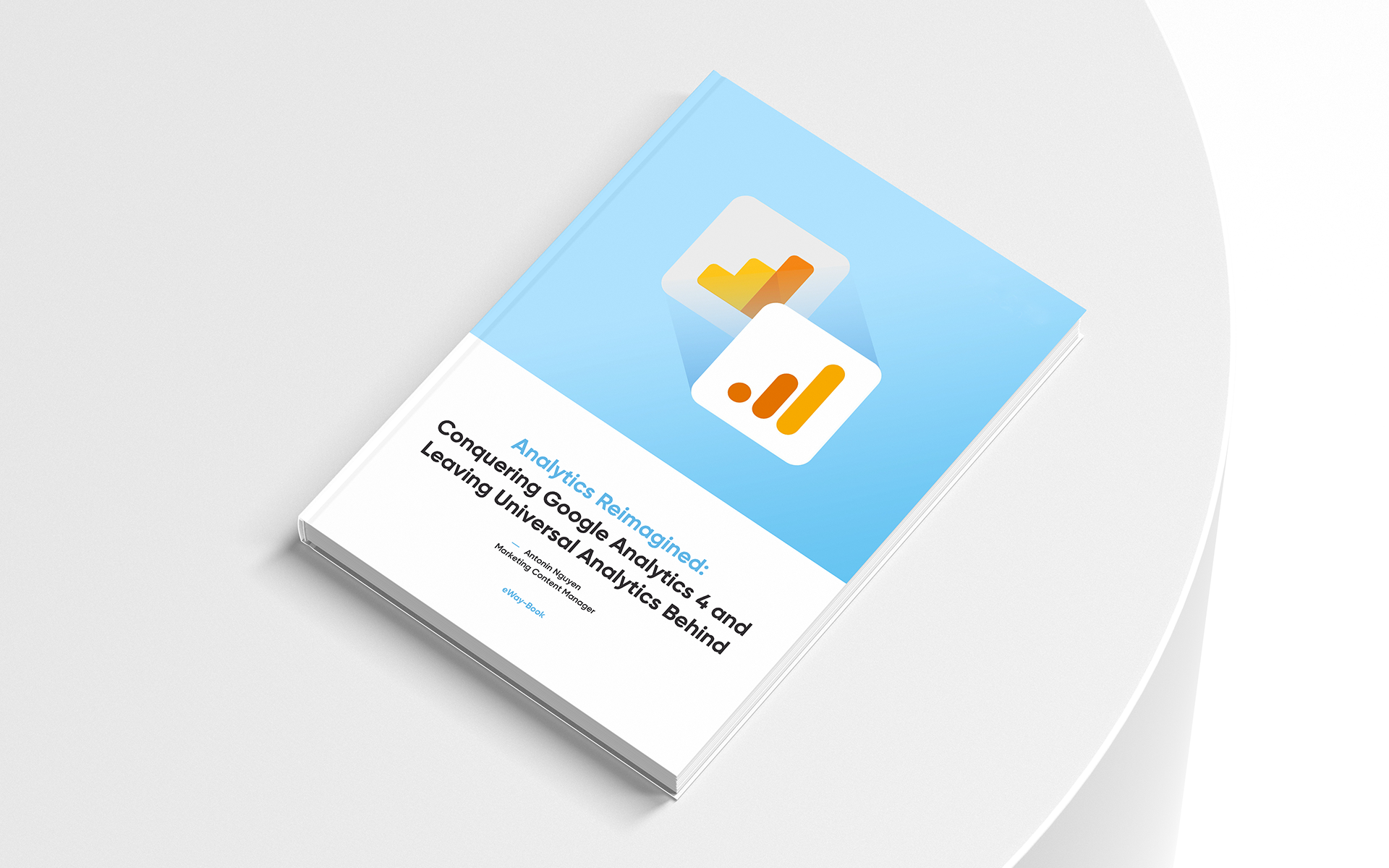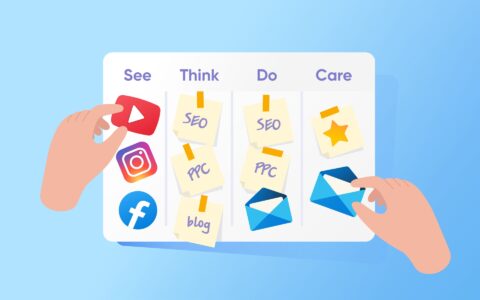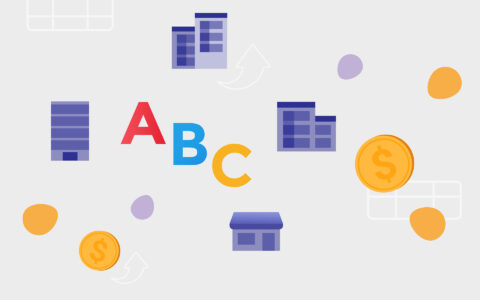The marketing world keeps spinning. It’s an area that always changes according to the new trends. And if you don’t know about them and don’t know how to work with them, you’re missing out. Opportunities and customers just don’t stop at your door. Don’t ignore the trends and see the prediction for 2025 to be ready to grow big. And to be seen wide.
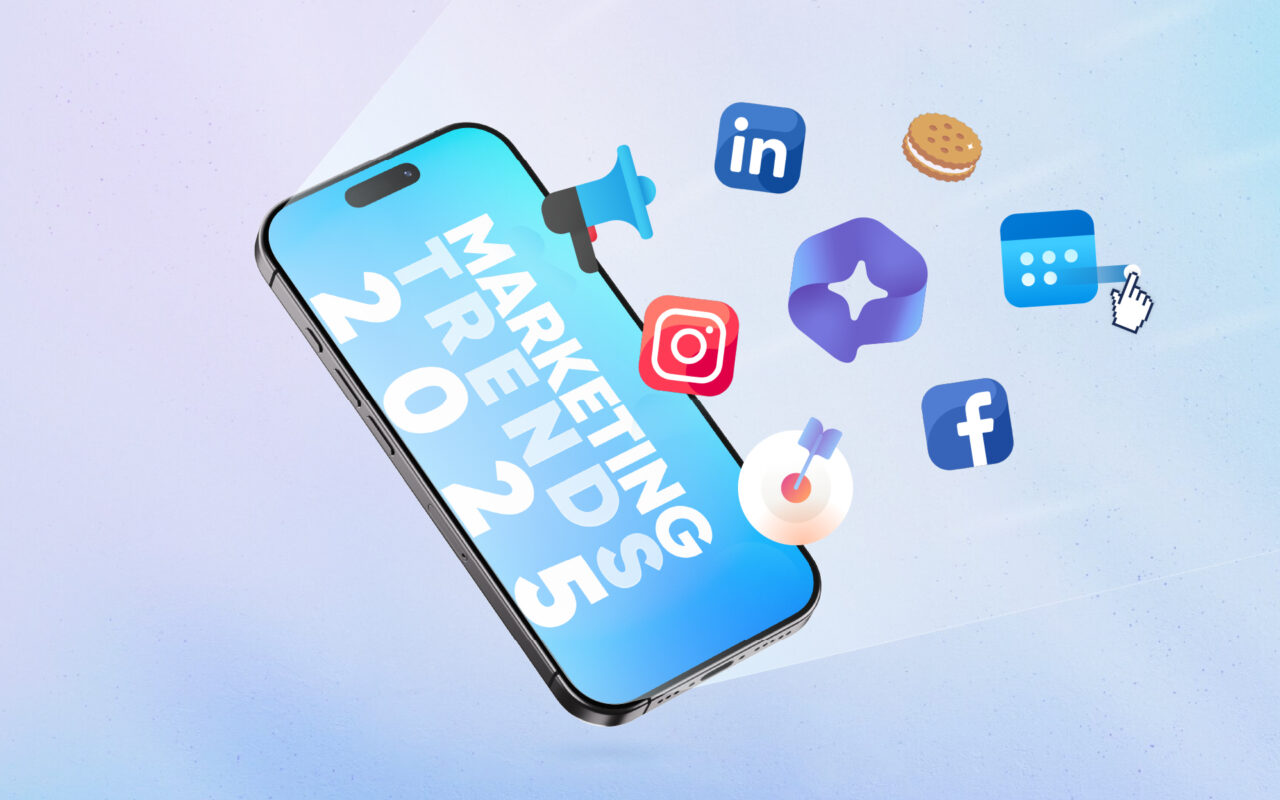
„Yeah, I think this will work.“ How many times have you yourself said that about your campaign? Or have you heard your marketing team say that? There’s one rule in marketing: don’t make decisions based on your gut feeling. Maybe it is a good idea in real life, but definitely not in marketing.
Including social media. Let me give you an example.
Algorithms like specific things and elements. Sure, trends on Instagram or TikTok change quickly, but isn’t it great we know how to create content, so the platform likes it and supports it for free? Actually, it’s a huge advantage. And if we know about it, we can grow big easily.
We don’t have to search for ways ourselves or keep promoting everything having a big budget; we can just work with trends and keep growing organically.
So, what are they for 2025?
Table of content:
1. Content Creation and Personalization with AI
2. Voice Search Optimization: Search Engines Must Understand You
3. Sustainability, Because Consumers Care
4. Selling on One Click
5. Organic Content is Still King, Authenticity, and Reels
6. Data and Analytics
7. Automation and Testing
8. Influencer Marketing
9. The End of Cookies
Your 2025
1. Content Creation and Personalization with AI
AI is more and more important in marketing. Year by year. It’s used for the creation of blog posts, newsletters, videos, or social media posts.
Probably all popular tools offer AI features nowadays. And you, as a marketer, can get further thanks to them.
What do I mean by “further”? AI makes you work faster and be more productive. At least to a certain extent.
It’ll be your assistant when creating content. And can also replace Google Search when you’re looking for information. Plus, it can do analyses and quick research for you as well. So, use it.
But humans still matter in AI-powered content creation; don’t forget that. Why?
Because only humans can understand culture-related things, have a sense of humor, and talk to other humans better.
It’s because past experiences matter. AI cannot talk about having troubles with something and then solving it itself or with a product, but a marketer can. You can. So, make your audience feel understood and safe. Build trust and use AI.
When it comes to personalization, AI can read your audience and their behavior and personalize the content of your marketing campaign effectively.
After the campaign, you can also use AI powered marketing analytics tools for analysis of its results, but we’re gonna get into this a bit later.
2. Voice Search Optimization: Search Engines Must Understand You
“Hey, Siri.” How many times a day do you call Siri like that? Or another voice assistant.
That’s right, a couple of times a day. Now, imagine that each of your potential clients does, too.
And if you want the search engines to understand your content and read it out loud, you have to create titles that match your clients' questions.
How does it look in real life? Your title can’t be “Best CRMs in 2025”, but, must be “What’s the best CRM on the market currently”.
This and the following years, voice searching will be more and more popular. So be ready to be the one who answers your potential client’s questions. And offer them your best solution.
3. Sustainability, Because Consumers Care
Green is sexy. And so are brands that are sustainable.
At least, that’s how consumers see it. Especially the younger generations.
And since the younger generations are the future of your company, you should focus on being green and sustainable.
It is important, of course, to communicate it. Share on your socials what steps you took to be carbon-neutral, for example. And how important that is for you as a company.
The future will get more challenging when it comes to climate change; the situation is already critical, so as you can guess, sustainability is going to be more and more topical in the near future.
4. Selling on One Click
Did I hear something cracking? Oh, that was a marketing funnel. It broke. Like it was made of glass. Who did it? Gen Z with their shopping on one click, via social media.
This way of shopping is actually popular among many, not only Gen Z. People see something in a Reel, and within seconds, they are on the seller's website, ready to place an order and pay with Apple Pay. They just want to order products as quickly as possible.
Does this scenario sound crazy to you? Well, it shouldn’t, it’s reality. And more and more people are going to shop this way in the future.
It’s easy, comfortable, and, for brands, often much cheaper when it comes to marketing. How come? They don’t have to spend lots of money on professionally created ads, and if their content goes viral, they don’t even have to spend money on campaigns at all. Billions of people see it without the Reel to be promoted on socials.
To sum up, how to not cry over a broken marketing funnel? Allow your customers to shop online via your social media accounts. Instagram and TikTok offer better conditions for you as a buyer in 2025. And gives you great features you can use to boost your sales, e.g. links for your products right in Reels.

5. Organic Content is Still King, Authenticity, and Reels
Organic content is still king. And UGC content queen.
Be consistent, and authentic, and include in your content elements that the algorithm likes and just watch. Your posts will get the reach, likes, and you’ll get new orders.
Why is authenticity so attractive to people? Because it shows reality, how your product actually looks and works.
Your potential customers see your product with no filter. They know what to expect from it and what they can look forward to.
Fight for attention, that’s what today’s marketing is all about. And Reels are the best tool to get people’s attention. They are short and often entertaining. And they perfectly fit into these times when everybody’s in a rush and no one has time.
So be part of this game. Create short videos in which you’ll show people your product and how it works. Put the link for it right in the post and that’s it. Your company will save money, time, and energy on ads. And your potential customers will be happy because they will feel safer and won’t be bothered by interacting with your content for too long.
6. Data and Analytics
Data today is more important than it was yesterday or last year.
They are the basis for understanding what works in marketing and what doesn’t. And help you to make a move the right way.
They help you to better understand your customers’ behavior and see how each of your campaigns did. One step closer to a goal, that’s what you are with good-quality data.
The best assistant here is Google Analytics 4.
If GA4 is all new to you, our free guide will help you here. Download it for free via the button below.
7. Automation and Testing
You can automate in many areas.
I recommend you focus on:
- Email marketing - Trigger-based emails are a game-changer. It makes your communication more efficient and ensures more conversions.
- Publishing plan of social media posts - You can use smart tools for planning and publishing your social media posts. These can also notify you about new mentions of your brand in other people’s posts and comments. Save yourself time and stay consistent thanks to automation.
- Personalization on your web - Use AI to personalize content on your web and interact on a deeper level with your potential customers - web visitors.
- Ads - Work with tools for automation in Google Ads or Facebook Ads. You’ll then be able to better adjust your offers, test their different versions, and optimize your budget based on their performance. Result? You’ll achieve better ROI and keep your cost per acquisition low.
And since one-fits-all doesn’t work in marketing, you have to keep testing.
If a new idea for a campaign pops up in your head, before immediately publishing it, first test whether people like it.
On Instagram, for example, you can already work with Trial Reels. That’s a feature that allows you to first publish your post so it’s visible only to your non-followers who can react to it. Then you do an analysis, see how many people interacted with your content, and you can then decide whether you really want to share it in your feed. This can help you a lot. You will ensure that you’ll get positive reactions, and therefore, keep your brand reputation safe.
8. Influencer marketing
TV ads are great for brands who want to be seen by hundreds of thousands of people. But they don’t help that much with selling.
This method of promotion is about reminding people you exist as a brand and informing them about your new product. A beautiful new design of Audi? Wow, says John, age 40, sitting on the couch in his living room.
But that’s it.
Potential customers are, however, demanding these days. It’s not enough for them to see the product and know about its existence. People know there are many products similar to yours on the market. What they need is to know how your product looks in real life. And how it can actually help them. Plus, they also want to read or hear reviews on it.
Who can cover all of this in one short video? An influencer.
It works like this: influencers already have a loyal fan base who trust them and love what they do. So, it’s much easier to promote your products with the help of relevant influencers because the audience they talk to is very likely to fall in love with your product, immediately.
They like and adore what their favorite influencer likes. Simple as that. Also, if the influencer shares their thoughts on your product and tells why they like it, you get one huge review that will be convincing.
Is this the future of product promotions and ads? Yes.
Research by Francis Academic Press has confirmed that promotion by influencers sells more than TV ads.
And many other sources show similar findings. For example, a case study from the Advertising Benchmark Index further demonstrates that influencer marketing is more effective when it comes to brand awareness and generally increases interest in a product more than TV ads.
To sum this up, influencer marketing is more personal and authentic. And therefore, resonates more with your target audience.

9. The End of Cookies
In 2025, we will most probably have to say goodbye to cookies.
Consumers might be happy because Google will use Privacy Sandbox instead, but for you as a marketer and business owner, this will be quite a challenge.
But a good one. Instead of using third-party services, you can start working with data right from your customers.
That means you’ll have a big new opportunity to strengthen your relationships with customers.
What to do? Invest in data acquisition tools and develop a new strategy for obtaining your customers’ data directly.
Will you create a survey that offers a freebie for completion? Or will you focus on your web and add elements that will entertain its visitors but at the same time help you to understand what they’re interested in? It’s up to you. Be creative.
Your 2025
Well, this year might be a bit challenging for you as a marketer. But who’s ready can’t be surprised and certainly won’t lose.
Get inspired by this article. Take it as the first step into the marketing world of 2025 and keep learning about the trends in ours blog.



